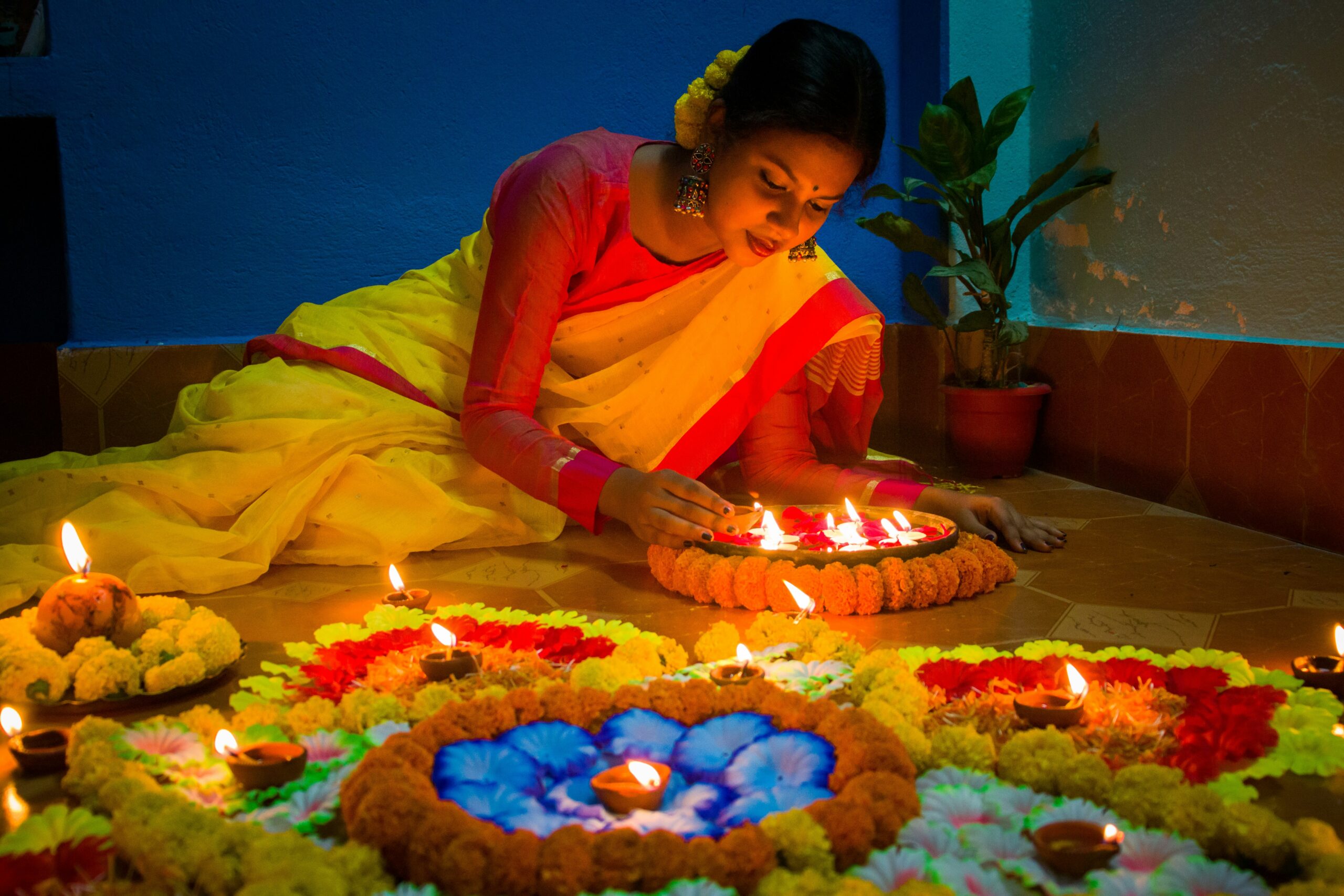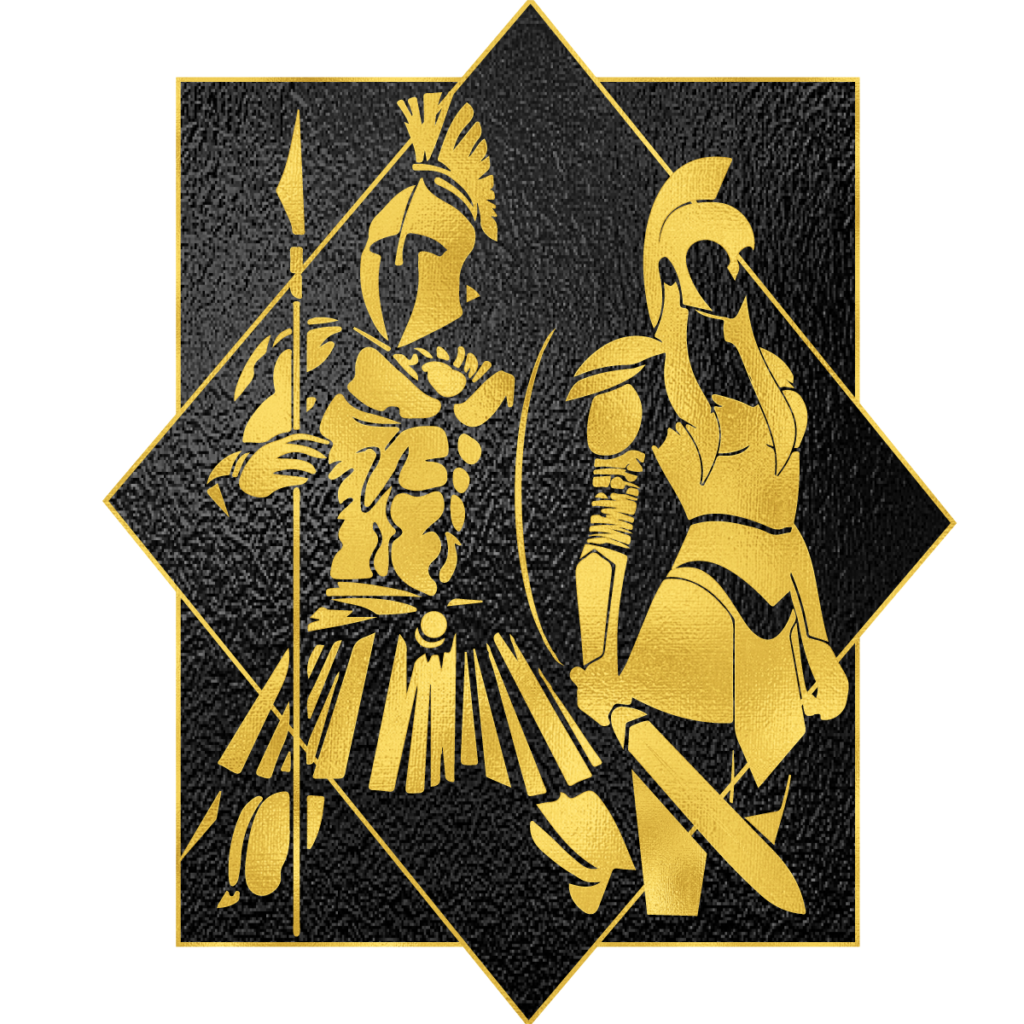Diwali, also known as Deepavali, is one of the most widely celebrated festivals in India and around the world.
This festival of lights transcends geographical and cultural boundaries, uniting people in the joyous celebration of
- good over evil, light over darkness, and knowledge over ignorance.
Diwali, with its rich traditions, vibrant customs, and diverse celebrations, holds a special place in the hearts of millions, fostering a sense of unity and togetherness.
Historical Significance
Diwali finds its roots in ancient Hindu mythology, and its significance is deeply embedded in various legends.
One of the most prominent stories associated with Diwali is the return of Lord Rama to Ayodhya after defeating the demon king Ravana.
The people of Ayodhya welcomed Lord Rama by lighting oil lamps, or diyas, to illuminate his path and symbolize the victory of righteousness.
This tradition continues to be a central theme of Deepawali celebrations, symbolizing the triumph of good over evil.

The Festival of Lights
Diwali is aptly named the Festival of Lights, as it is characterised by the illumination of homes, streets, and public spaces with an array of lights, candles, and colourful decorations.
The significance of light extends beyond the physical realm; it is a metaphor for dispelling the darkness of ignorance and spreading the radiance of knowledge.
The sight of beautifully lit homes and the sparkle of fireworks create a mesmerising ambience, fostering a sense of joy and positivity.
It is not just about lighting lamps and bursting crackers,
- there’s a huge cultural as well as symbolic reasons behind many of the rituals associated with Deepwali.

Diwali Traditions and Customs in India
Rangoli
- A vibrant and artistic tradition during Diwali involves creating rangoli, colourful patterns and designs made on the floor using coloured powders, flowers, or rice.
- These intricate designs symbolize welcoming guests and invoking divine blessings.
Diwali Puja and Prayers
- Diwali is a time for religious ceremonies and prayers.
- Families come together to perform puja (worship) of various deities, including Goddess Lakshmi, the goddess of wealth and prosperity.
- The belief is that invoking her blessings during Diwali brings good fortune and abundance.
- The puja and rituals in the Bengali Hindu community focus on Kali, the goddess of war, instead of Lakshmi.

On the night of Diwali, people across much of India dedicate rituals to Lakshmi to welcome her into their clean homes and to bring prosperity and happiness for the coming year. (Desi Kids Know How Fun and stressful it is).
Exchanging Gifts On Diwali
- The exchange of gifts and sweets is a common Diwali tradition, symbolizing the sharing of joy and happiness.
- It is a time when families and friends come together, strengthening bonds and expressing love and affection.
Feasting
- Diwali is a culinary delight with various special sweets and savoury dishes prepared for the occasion.
- Families gather for elaborate feasts, sharing delicious meals that are an integral part of the festive celebrations.

Diwali Celebrations Worldwide
While Diwali has its origins in Hinduism, its celebration has transcended religious boundaries.
People from various cultural backgrounds participate in the festivities of Deepwali.
In countries like Nepal, Sri Lanka, Malaysia, and Singapore, Diwali is celebrated with equal enthusiasm,
- albeit with regional variations in customs and traditions.
United States:
- In the United States, where a diverse Indian diaspora exists, Diwali has gained recognition and acceptance as a cultural celebration.
- Cities with significant Indian populations host grand Deepawali events, including cultural performances, music, and traditional Indian cuisine.
- The lighting of diyas and fireworks adds a touch to the traditional celebration.
United Kingdom:
- Diwali is widely celebrated in the United Kingdom, especially in areas with a substantial South Asian population.
- Cities like Leicester and London host vibrant Deepawali festivals with street parades, traditional dances, and the lighting of lamps in public spaces.
- British prime minister Rishi Sunak celebrated Deepawali along with his wife Akshata Murty and his daughters at 10 Downing Street in London in 2023.

Australia:
- In Australia, Diwali celebrations have become more mainstream, embraced by the multicultural society.
- Major cities witness Deepawali events featuring cultural performances, art exhibitions, and the illumination of iconic landmarks.
Canada:
- The multicultural fabric of Canada is adorned with Deepwali celebrations that showcase the diversity of Indian culture.
- Diwali melas (fairs), cultural shows, and community events bring together people of all backgrounds to celebrate the festival.
Global Recognition Of Diwali and Acknowledgment
In recent years, Diwali has garnered global attention and acknowledgement.
The United Nations recognized Diwali as a significant cultural and religious celebration, acknowledging its message of light, hope, and inclusivity. ‘
The ‘Festival Of Lights’ was first celebrated in the White House by George W. Bush in 2003 and its religious and historical significance was officially recognized by the United States Congress in 2007.
Barack Obama became the first president to personally attend Diwali at the White House in 2009.
On the eve of his first visit to India as President of the United States,
- Barack Obama released an official statement sharing his best wishes with “those celebrating Diwali”.
The lighting of the iconic United Nations building in New York during Deepawali has become a symbol of the festival’s universal message.

Interfaith Celebrations
Diwali’s message of light, love, and unity has prompted interfaith celebrations in various parts of the world.
Interfaith events during Diwali bring together people of different religious backgrounds,
- to share in the joy of the festival, fostering understanding and harmony.

Environmental Consciousness
In recent times, there has been a growing awareness of the environmental impact of Diwali celebrations,
- particularly the use of fireworks.
Many individuals and communities are opting for eco-friendly celebrations, emphasizing the use of sustainable and biodegradable materials.
This shift reflects a collective commitment to celebrate traditions responsibly while preserving the environment for future generations.
Let The Light Of Diwali Guide You
Diwali, the Festival of Lights, transcends borders and brings people together in a celebration of joy, hope, and cultural diversity.
Whether in the bustling streets of Mumbai, the multicultural neighbourhoods of London, or the vibrant cities of the United States,
- Diwali resonates as a symbol of unity, positivity, and the triumph of good over evil.
When you find yourself surrounded by darkness from within and your surroundings,
- look towards the light within.
We are all susceptible to corruption by power, violence, greed, lust, ego and whatnot.
- We are bound by our Indriya (senses), let the light of Diwali free us.
Consider this light as the hope of being a better you for a better tomorrow for the world.
As the diyas flicker and the fireworks light up the night sky, the ‘festival of lights’ continues to illuminate hearts worldwide,
- fostering a sense of shared humanity and interconnectedness.
May the radiance of Diwali bring light to every corner of the world.
Symbolizing a future filled with peace, prosperity, and goodwill.








